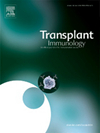The mission of Transplant Immunology is to disseminate information regarding the study of transplantation pathobiology, to serve as a forum for new ideas and concepts in clinical and experimental transplantation, to foster the evolution of the discipline and to assist transplant investigators in their professional endeavours. Transplantation pathobiology encompasses organ preservation, ischaemia/reperfusion injury, hyperacute rejection and xenotransplantation, acute and chronic rejection, and tissue anomalies that develop in association with transplantation. Although immunology plays a significant part in transplant pathobiology, other factors related to organ physiology, acute and chronic inflammation, vascular biology, cell biology, tissue repair/remodelling, cellular signalling and gene expression are important contributors to these pathologic processes. Studies in all of these areas are suitable for publication in Transplant Immunology. Investigators are encouraged to submit the results of in vitro and in vivo studies that fall anywhere along the spectrum from basic research to preclinical and clinical research. Transplant Immunology also seeks reports on therapeutic agents and approaches, including transplant-related gene therapy strategies. Submitted manuscripts will be rapidly peer-reviewed and published. They will be judged on the basis of scientific merit, originality, timeliness and quality. In addition, Transplant Immunology will publish features intended to help evaluate issues, highlight advancements or assist investigators in their professional endeavours. Unsolicited suggestions and contributions for these features are encouraged.
